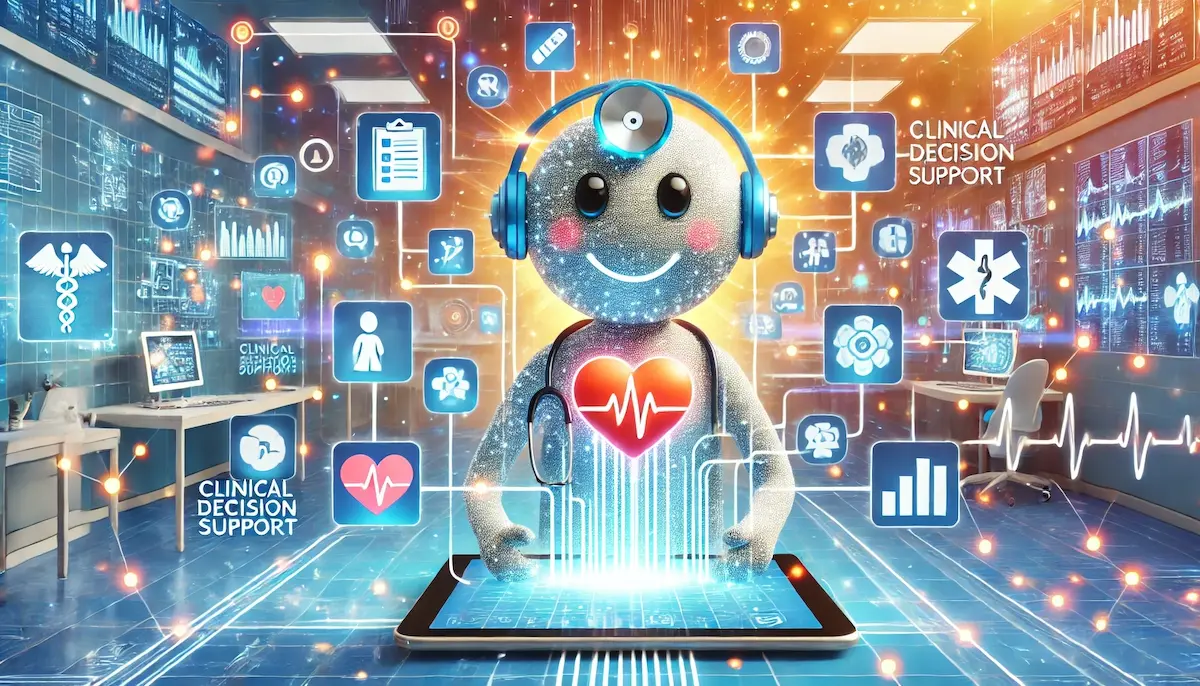Clinical Decision Support (CDS) systems are pivotal in modern healthcare, providing healthcare professionals with intelligent tools to enhance decision-making processes. By integrating patient data with medical knowledge and algorithms, CDS systems offer evidence-based recommendations, alerts, and guidelines, ultimately improving patient outcomes and operational efficiency. This article explores what clinical decision support is, its key features, applications, benefits, and future trends.
What is Clinical Decision Support?
Clinical Decision Support (CDS) refers to health information technology systems designed to provide healthcare professionals with clinical knowledge and patient-specific information, intelligently filtered and presented at appropriate times, to enhance patient care. These systems utilize data from Electronic Health Records (EHRs), clinical guidelines, and other medical resources to assist in diagnosis, treatment planning, and overall patient management.
Key Features of Clinical Decision Support Systems
CDS systems encompass several key features that enhance their utility in healthcare settings:
1. Alerts and Reminders
CDS systems provide real-time alerts and reminders to healthcare providers. These can include notifications about potential drug interactions, overdue preventive care measures, abnormal lab results, and critical patient conditions.
2. Diagnostic Support
CDS systems assist in the diagnostic process by providing differential diagnosis suggestions based on patient symptoms, history, and test results. This helps clinicians consider a broader range of potential diagnoses.
3. Treatment Recommendations
CDS systems offer evidence-based treatment recommendations tailored to individual patient profiles. These recommendations are derived from clinical guidelines, research studies, and best practices.
4. Order Sets and Protocols
CDS systems include predefined order sets and clinical protocols that standardize care processes. These order sets streamline the ordering of tests, medications, and procedures, ensuring adherence to established guidelines.
5. Clinical Guidelines
CDS systems integrate clinical guidelines and pathways, providing clinicians with easy access to up-to-date recommendations for managing specific conditions.
6. Data Analytics
CDS systems use advanced data analytics to analyze patient data and generate actionable insights. This includes risk assessments, predictive analytics, and population health management tools.
7. Workflow Integration
CDS systems are designed to integrate seamlessly with existing EHR systems and clinical workflows. This ensures that decision support is available at the point of care without disrupting routine processes.
Applications of Clinical Decision Support Systems
CDS systems have a wide range of applications across various aspects of healthcare:
1. Medication Management
CDS systems help manage medications by providing alerts for potential drug interactions, allergies, dosing errors, and adherence issues. This enhances medication safety and reduces adverse drug events.
2. Chronic Disease Management
CDS systems support the management of chronic diseases such as diabetes, hypertension, and heart disease by offering personalized treatment plans, monitoring patient progress, and providing alerts for preventive care.
3. Preventive Care
CDS systems promote preventive care by reminding healthcare providers and patients about necessary screenings, vaccinations, and lifestyle modifications. This helps in early detection and prevention of diseases.
4. Acute Care
In acute care settings, CDS systems assist in diagnosing and treating acute conditions such as infections, sepsis, and injuries. They provide real-time alerts and recommendations to support rapid and accurate decision-making.
5. Surgical Care
CDS systems enhance surgical care by providing preoperative assessments, intraoperative decision support, and postoperative care guidelines. This helps in optimizing surgical outcomes and reducing complications.
6. Population Health Management
CDS systems analyze population health data to identify trends, assess risks, and develop targeted interventions. This supports public health initiatives and improves community health outcomes.
Benefits of Clinical Decision Support Systems
Implementing CDS systems offers numerous benefits for patients, healthcare providers, and the healthcare system as a whole:
1. Improved Quality of Care
CDS systems enhance the quality of care by providing evidence-based recommendations, reducing variability in clinical practice, and promoting adherence to guidelines.
2. Enhanced Patient Safety
By providing alerts for potential errors and adverse events, CDS systems improve patient safety and reduce the risk of harm. This includes preventing medication errors and ensuring timely interventions.
3. Increased Efficiency
CDS systems streamline clinical workflows, reduce the time spent on routine tasks, and support more efficient use of resources. This allows healthcare providers to focus more on patient care.
4. Better Clinical Outcomes
By supporting accurate diagnoses, appropriate treatments, and timely interventions, CDS systems contribute to better clinical outcomes and improved patient health.
5. Cost Savings
CDS systems can reduce healthcare costs by preventing avoidable complications, reducing hospital readmissions, and optimizing the use of diagnostic tests and treatments.
6. Enhanced Data Utilization
CDS systems leverage data from EHRs and other sources to generate actionable insights, supporting data-driven decision-making and continuous quality improvement.
The Future of Clinical Decision Support
The future of CDS systems is promising, with several trends and advancements shaping their evolution:
1. Artificial Intelligence and Machine Learning
The integration of artificial intelligence (AI) and machine learning will enhance CDS systems by enabling more sophisticated data analysis, predictive analytics, and personalized recommendations.
2. Interoperability
Efforts to improve interoperability among different health IT systems will facilitate seamless data exchange and integration, enhancing the effectiveness of CDS systems.
3. Natural Language Processing (NLP)
NLP technology will enable CDS systems to process and understand unstructured data from clinical notes, improving the comprehensiveness and accuracy of decision support.
4. Patient-Centered Care
Future CDS systems will increasingly focus on patient-centered care, incorporating patient preferences, social determinants of health, and lifestyle factors into decision support.
5. Real-Time Decision Support
Advancements in real-time data processing will enable CDS systems to provide immediate and contextually relevant decision support at the point of care.
6. Telehealth Integration
The integration of CDS with telehealth platforms will enhance remote patient monitoring, virtual consultations, and telemedicine services, providing comprehensive decision support regardless of location.
Clinical Decision Support (CDS) systems are revolutionizing healthcare by providing intelligent, evidence-based tools that enhance clinical decision-making. As technology advances, CDS systems will continue to improve the quality of care, patient safety, and operational efficiency, ultimately leading to better health outcomes for patients.
Blockfine thanks you for reading and hopes you found this article helpful.
